It’s a question that is pondered by most professionals as they embark on a new career as a Programmer and which divides the programming community in opinion. “Which programming language should I learn first?”. The very fact that you are reading this post is very likely because you have the exact same query.
The fact is that there is an array of programming languages out there for you to choose from, which can certainly cause some confusion – especially if you have never worked with code before. To make your task a little easier, take the following considerations into account when weighing up your options:
Factors to consider
Your technological interests
This feeds directly into another important question that you will need to consider: “Why do I want to learn to code?”. What is it that inspired you to become a Programmer? It can very often be the case that a certain technology is impressive enough to pique someone’s interest to the point where they would like to learn more about it. It is always more enjoyable to study a subject that you are genuinely passionate about rather than trudging through just to get it done.
For example; if you love the technology used in Android applications and would like to learn how to develop an app, Java would be the perfect programming language to use. Android apps can also be developed with the use of languages such as C# and JavaScript, but Java is by far used more often for this purpose. If you are more of an Apple fan, it would make more sense to study the Objective-C language, which is used to develop the apps found in iOS devices. Learning to code has many benefits, and even kids are encouraged to take on coding classes, because it helps develop their problem-solving skills and creativity.
Your career aspirations
You will also need to think about the career path that you would like to follow. Not all Programmers follow the same path and with the array of programming languages out there, it makes sense that certain languages are more applicable to certain technologies and hence, certain programming positions.
There are a range of IT positions that utilise coding, whether on a daily basis or as a smaller part of their duties. These include:
- Computer Programmer
- Software Application Developer
- Web Developer
- Database Administrator
- Computer Network Architect
- Computer Systems Analyst
- Software Quality Assurance Engineer
Each of these positions will require a solid understanding of programming even though their roles are very different. Therefore, it is vital that you understand the direction that you want your career to take before deciding on the programming language that you wish to specialise in.
What are your programming resources?
The most obvious and thorough resource that you can utilise is to enrol for a programming course. Here you may even have the option to study multiple languages in a package, such as ITonlinelearning’s New to Programming Bundle.
The Web is always a wealth of information and it is no different with programming. There is a veritable treasure trove of information available in the form of videos, tutorials and forums that can guide you in the right direction.
Language difficulty
The first programming language that you choose to learn will also depend on how much experience you have had with coding so far. Languages such as C++, while highly effective, are just more difficult to learn. If you have never had any experience with programming, a good place to start would be a language that is not quite as intricate, such as Python or Ruby on Rails.
Once you have mastered an entry-level language, you will find it much easier to understand and learn one of the more difficult ones, since you will have a fundamental working knowledge of coding. This will also help you reduce the time that you will spend on learning a more advanced language.
An overview of languages
Now, to narrow your choices down even further, let us take a look at each of the more popular and widely used programming languages out there. Each has its pros and cons, some work well with multiple technologies, while others are more exclusive to only a few selected technologies and as mentioned before, some pertain more to certain programming positions than others.
JavaScript
Although they do have some similarities, do not confuse JavaScript for Java, as they are fundamentally very different. JavaScript can be used across multiple platforms and is object-oriented. It is used to increase the interactivity of web pages, to automate certain tasks and to update web page content on the fly.
It is considered to be one of the easier programming languages to learn as it can be loosely typed without the need to declare all variables, classes and methods. There is also no need for the implementation of interfaces or to explicitly type variables, parameters and function return types. JavaScript is currently the programming language that most new Programmers choose to study.
Python
Another object-oriented programming language, Python uses an elegant syntax. This makes the code that you have written easy to read, which makes it easier to get your program working the way that you intended it to. It incorporates various data types including numbers, strings, lists and dictionaries.
Many programmers choose to use Python because its ease of use encourages efficiency and productivity. Modules and packages are supported by Python and hence, program modularity and the reuse of code is encouraged. Similarly to JavaScript, Python is very often recommended as the programming language that new Programmers should start their careers with.
Java
Java is another object-oriented programming language that is present in millions of devices across the globe. It is open source and versatile enough that it is able to run on any platform. Java does not need to be executed sequentially, but rather makes it possible for statements to be executed concurrently. Once you enter the world of programming, you will certainly encounter Java very often as it is used so abundantly.
C++
C++ is an extension of the C language, making it possible to code using C++, but utilising a C style of coding. This means that, effectively, it is considered to be a hybrid language. C++ is more difficult to learn than some of the other languages that we have covered here and is not often considered by new Programmers as the first language that they wish to learn.
C#
Considered to be a CLI (Common Language Infrastructure) language, C# is often used in Web development and networking. The syntax is highly expressive but is considered relatively easy to learn, making it a good starting point for aspiring Programmers. C# simplifies many of the more complex features of C++. Visual C# includes an advanced code editor and user interface, making it even easier to utilise.
.Net
.Net is a framework that provides programming guidelines in the building of various types of applications across multiple platforms such as Web, mobile, desktop and gaming. It provides the ability to use the Web for an array of services, it is open source and enables you to utilise editor extensions, providing even greater functionality. It is also compatible with various programming languages, including C# and C++.
Ruby on Rails
Another Web application framework, Ruby on Rails provides structures for Web services, Web pages and databases. It is open source and is considered to be a great time-saver, as it consists of an array of libraries that can be used when working on mundane tasks such as building menus, forms or tables. Many Programmers consider Ruby on Rails to be cleaner and easier to troubleshoot than other languages.
Objective-C
Based on the C programming language, Objective-C is a high-level, object-oriented language that has gained popularity for its use in Apple’s OS X and iOS operating systems. Since it is a superset of the C language, any code that is written in C can run in Objective-C. If you have an affinity for apple technologies and applications, Objective-C would be a great starting point.
In conclusion
With so many languages to choose from (we have only listed a few here), your best option would be to whittle them down to a shortlist with consideration given to your current skill level, your career aspirations and the type of Programmer that you aspire to become. Remember that learning an easier language first will make it simpler to master the more complex and involved languages later.
It is highly recommended that you master not only one, but multiple programming languages as your career progresses. This will improve your versatility and enable you to work in multiple programming environments.
My name is Amber Wyllie, I'm 25 years old and live in Sittingbourne, Kent. In my free time, I enjoy photography, movies and gaming. I'm fairly new to blogging but have been told I have a knack for it. I hope to share my interest in gaming and technology with as many people as possible. Have a great day!

4 Comments
Leave a Reply
Cancel reply
Leave a Reply
This site uses Akismet to reduce spam. Learn how your comment data is processed.











































































































































































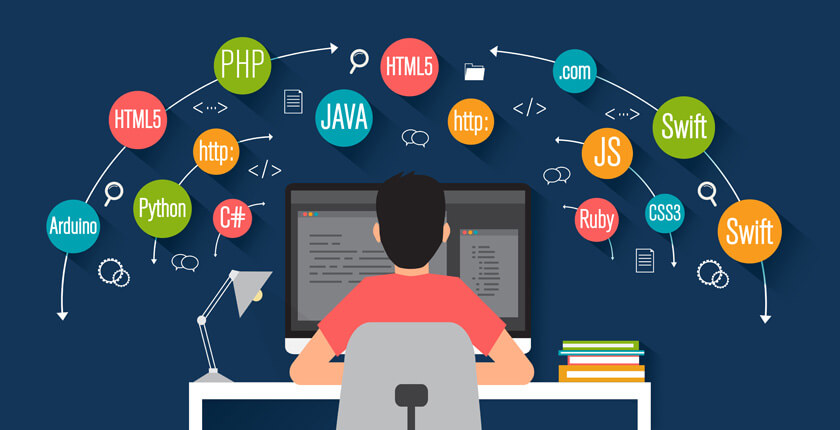
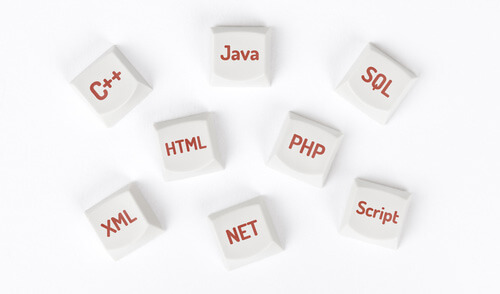








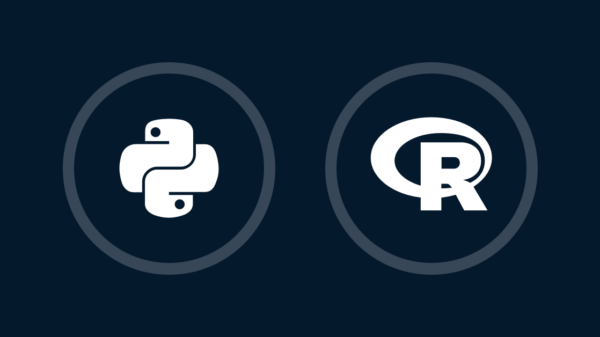
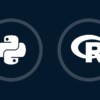

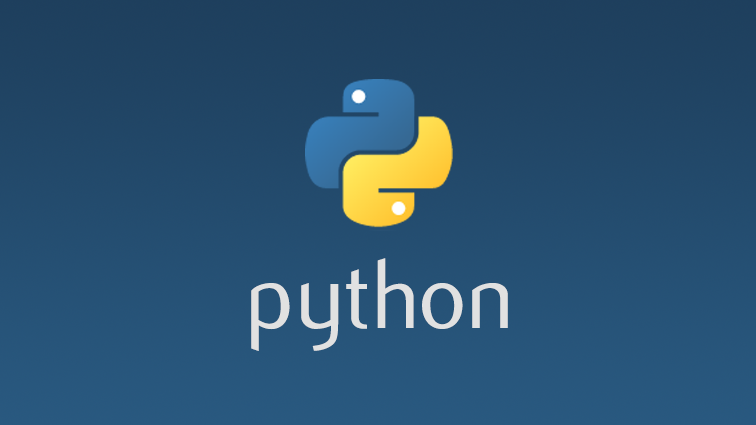
Susan Burling
July 11, 2018 at 12:12 pm
Learning the first programming language is always the most difficult. Once you learn a programming language, learning a second one is easier. After you know two or more programming languages, each additional programming language is a lot easier to learn.
Here are 4 things to consider while learning:
1. Job Prospects and Future
The most critical thing to consider is the thing that jobs a particular programming language is probably going to enable you to get and what the future of that language is.
I’d state the most prominent programming languages are: C#,Java,Python,Ruby,JavaScript,C++,PHP
2. Technology That You Are Interested In
One excellent consideration when picking a programming language is essentially what technology you are keen on. On the off chance that you begin with a technology, the programming language choice might be simpler.
If you want to build modern websites and web apps, learn Javascript.
JavaScript is the most common way to make websites and web apps interactive. It’s most often used with libraries like jQuery and AngularJS to create web apps that work across all modern browsers and device types.
If you want to work in education, learn Python.
Python is the most popular. Python is easy to learn and focuses on simple and readable code Because of its popularity in the education sphere, Python has a lot of libraries for things such as mathematics, physics, and natural processing. Besides, a site for NASA is built on Python.
Do you want to build Android apps? learn Java.
you want to work on big, complex, data-driven sites and apps? learn SQL.
you want to build games or audio/video apps? learn C++.
3. Difficulty Level
Some programming languages are much more difficult to learn than others. A language like C#, Python, Ruby, or PHP is going to be much easier starting out. There are even beginner languages specifically tailored to learning programming.
4. Resources Available to You
Some programming languages might not have the same number of books, online videos, or different resources available, which may make them more difficult to learn. Other more famous programming languages may have a lot of tutorials online, and different resources you can use.
Debadeep Biswas
July 28, 2018 at 7:58 am
I always wanted to pursue a course on Programming but didn’t know how to start. Well after a lot of web pages finally found some useful information here.
Mohan Reddy
August 4, 2018 at 1:40 pm
The most critical thing to consider is the thing that jobs a particular programming language is probably going to enable you to get and what the future of that language is.
I’d state the most prominent programming languages are: C#,Java,Python,Ruby,JavaScript,C++,PHP
Kaioken
August 31, 2018 at 1:38 am
Java!!!! best language everything else is irrelevant XD.